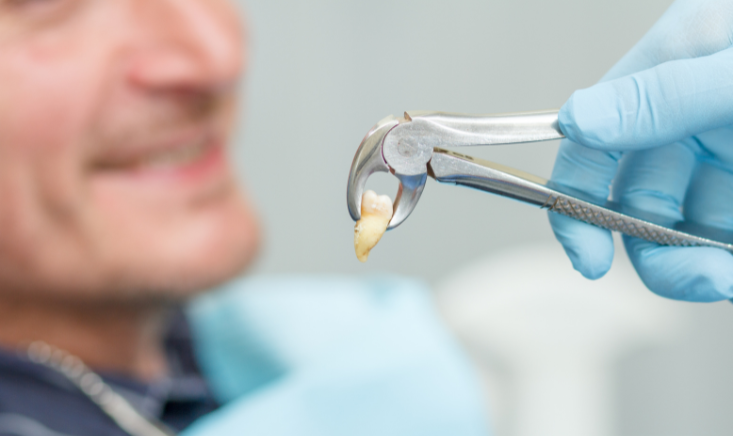Same Day Emergency Appointments Available!
Is It Normal To Have Ear Pain After Wisdom Teeth Removal?
Union, NJ
Wisdom teeth removal is a common dental procedure that many individuals undergo to alleviate pain and prevent potential oral health issues. However, some patients may experience unexpected symptoms following the procedure, including ear pain. Understanding the potential causes and whether ear pain after wisdom teeth removal is normal can help patients navigate their recovery more effectively.
Understanding Wisdom Teeth Removal
Wisdom teeth, also known as third molars, typically emerge in the late teens or early twenties. Due to limited space in the jaw, these teeth often become impacted or misaligned, leading to various dental problems such as pain, infection, or damage to adjacent teeth. In such cases, dentists recommend removing wisdom teeth to prevent complications and preserve oral health.
The Procedure and Recovery Process
During the wisdom teeth removal procedure:
- Anesthesia: Patients are typically administered local anesthesia, sedation, or general anesthesia to ensure comfort during the procedure.
- Tooth Extraction: The dentist or oral surgeon carefully removes the wisdom teeth through a surgical procedure.
- Sutures and Recovery: Sutures may be placed to aid in healing, and patients are provided with post-operative care instructions to manage pain and promote healing.
Possible Causes of Ear Pain After Wisdom Teeth Removal
While ear pain is not a common symptom directly related to wisdom teeth removal, it can occur due to several factors:
- Muscle Soreness and Jaw Movement: The process of opening the mouth wide during the procedure can strain the jaw muscles, leading to referred pain that may extend to the ears.
- Nerve Irritation: During surgery, nearby nerves can become irritated, causing radiating pain that may be felt in the ears.
- Sinus Issues: Wisdom teeth in the upper jaw are close to the sinuses. Sinus pressure or congestion can cause ear discomfort post-surgery.
- Temporomandibular Joint (TMJ) Disorder: Manipulation of the jaw during surgery or prolonged mouth opening can exacerbate underlying TMJ issues, leading to ear pain.
Is Ear Pain Normal After Wisdom Teeth Removal?
While ear pain can occur after wisdom teeth removal, it’s essential to differentiate between expected discomfort and symptoms that may indicate complications:
- Expected Discomfort: Mild ear pain or discomfort in the ears can be normal due to muscle soreness or jaw movement during and after the procedure.
- Persistent or Severe Pain: Intense or prolonged ear pain, especially accompanied by swelling, fever, or difficulty swallowing, may indicate infection or other complications that require immediate dental attention.

Managing Ear Pain After Wisdom Teeth Removal
If you experience ear pain following wisdom teeth removal, consider these tips to manage discomfort:
- Pain Medication: Over-the-counter pain relievers like ibuprofen (Advil) or acetaminophen (Tylenol) can help alleviate mild to moderate pain. Follow the dosing instructions carefully.
- Ice Packs: Applying an ice pack wrapped in a cloth to the affected area of the face can reduce swelling and numb pain.
- Jaw Exercises: Gentle jaw exercises recommended by your dentist or oral surgeon can help relieve muscle tension and promote healing.
- Heat Therapy: After the initial swelling has subsided (typically after 24 hours), applying moist heat to the jaw muscles can help relax them and alleviate pain.
- Hydration and Soft Diet: Drink plenty of water and stick to a soft diet to avoid placing undue stress on your jaw and teeth during recovery.
- Follow-up with Your Dentist: Attend all scheduled follow-up appointments with your dentist or oral surgeon to monitor healing progress and address any concerns promptly.
When to Seek Medical Attention
While mild ear pain can be managed at home, certain symptoms may warrant immediate medical attention:
- High Fever: A persistent fever may indicate an infection that requires antibiotics.
- Swelling: Significant swelling of the face or jaw can indicate complications such as a hematoma or infection.
- Difficulty Breathing or Swallowing: These symptoms may indicate severe swelling or airway obstruction and require emergency medical attention.
- Prolonged Pain: Contact your dentist if ear pain persists or worsens despite pain medication and home remedies.
Experiencing ear pain after wisdom teeth removal can be concerning, but in most cases, it’s a temporary and manageable symptom associated with the healing process. By understanding the potential causes of ear pain and knowing when to seek medical attention, patients can navigate their recovery with confidence. Remember to follow post-operative care instructions diligently and communicate any concerns with your dental care provider promptly. With proper care and attention, you can promote healing and minimize discomfort after wisdom teeth removal.
For more information or personalized advice regarding ear pain after wisdom teeth removal, consult your dentist or oral surgeon. Your oral health and comfort are paramount during the recovery period.
New Patients & Emergency Appointments Welcome!


